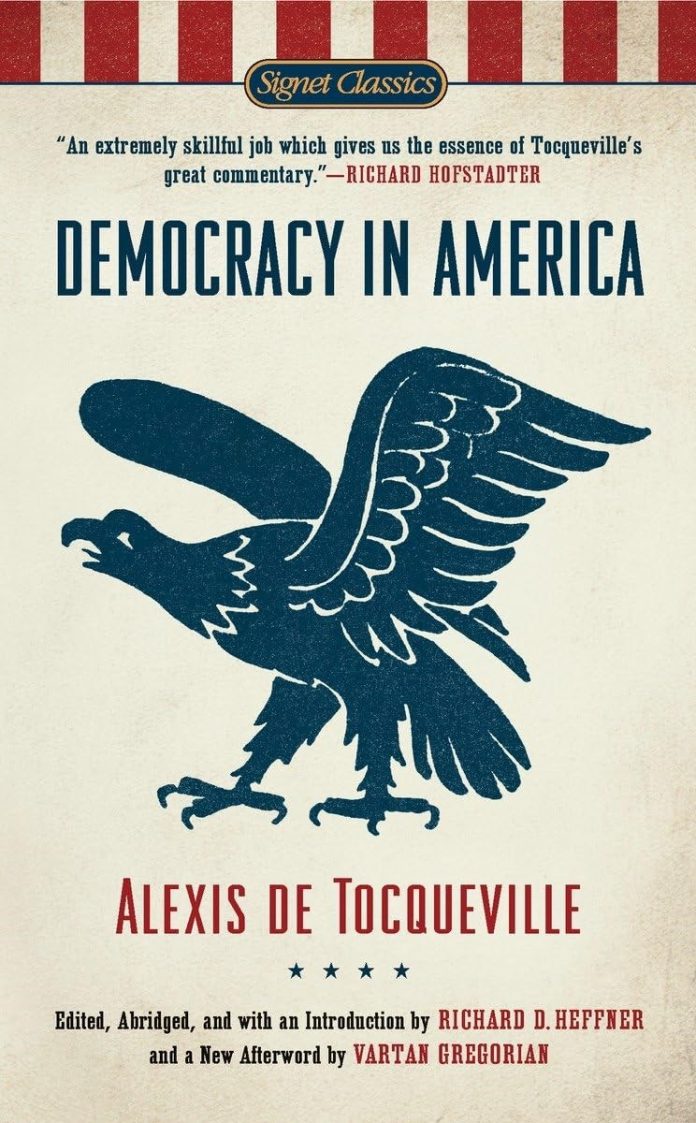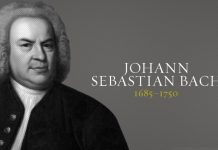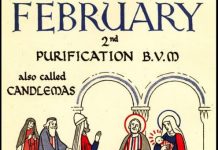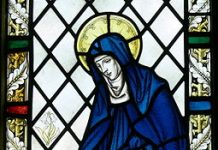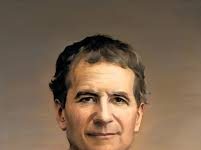“I believe that our descendants will tend more and more to be divided into only two parts, those leaving Christianity entirely and those entering into the bosom of the Roman Church.” (Democracy in America, 1835)
Nearly two hundred years ago Alexis de Tocqueville, a traveling Frenchman, completely immersed himself in American culture for a considerable length of time before writing his classic book on American democracy. As an outsider and one who had lived through the storm-ridden rise of republicanism in France, Tocqueville had a special aptitude and objective authority to comment on the comparative rise and future of democracy in America.
One of his sharpest observations was that in America, unlike in a monarchy, there was a profound insistence upon the dignity and equality of the common people before the law. This notion, spoken in the Declaration of Independence, became a political war cry to which all could rally. Democracy in its essence therefore establishes a veneration of opportunity for all and a belief in upward mobility into the future rather than a slavish resignation to a caste system that keeps great masses of citizens down. Moreover, the belief in something this noble would make people more patriotic and willing to sacrifice a great deal, even wounds and death on a battlefield, to preserve their chances for a better life when such chances were challenged by native tyrants or foreign enemies.
But from where and why did this political ethic of democracy arise and how was its success going to be made likely? Tocqueville did not doubt for a second that the principle of equality was a religious concept and the foundation of a free society:
… it is not so much that all citizens profess the true religion but that they profess a religion. Besides, all the sects in the United States are within the great Christian unity, and the morality of Christianity is everywhere the same.
That is to say, if all citizens abide by the same moral authority of Christ, equal treatment by citizens of one another will guarantee not only equal responsibilities to behave well, but equal rights and social justice for all. Tocqueville believed that if the United States was the most free and democratic country in the the world, it was because it alone was still the most Christian, European countries having succumbed almost entirely to the purveyors of disbelief. (It was, by the way, even before the time of Democracy in America that socialism and its future penchant for atheism began to take root throughout Europe.)
Tocqueville saw in the Christian religion a profound influence on the supreme importance of family, a notion that much of Protestant and agnostic Europe had been abandoning for centuries. The great influx of Catholic immigrants to the United States had reinforced the principle of unity that was found first in the family and then by extension spread throughout society. The strict Catholic teaching against divorce reinforced social stability in America, and Catholic priests had wisely dissociated themselves from political action, choosing rather to influence public affairs by way of stressing with their flocks the importance of moral virtues.
Tocqueville could see that in the America of his day even the most radical of revolutionaries were careful not to insist too loudly on moral libertarianism because the Christian majority would not stand for it. Tocqueville compared the decline of morals in a rapidly fragmenting Christian Europe with the stronger principal of Christian unity that America could still boast. (But if living in our time, doubtless Tocqueville would comment that the United States was catching up to Europe as a disintegrating Christian society.)
Tocqueville offers an interesting anecdote to prove his case about the powerful influence of religion in the America of his age:
While I was in America, a witness presented himself to the assizes of the county of Chester in New York and declared that he did not believe in the existence of God and the immortality of the soul. The presiding officer refused to accept his oath, given, he said, that the witness had destroyed in advance all the faith that could have been put in his words. The newspapers reported the fact without commentary.
Tocqueville was indeed not only a seer and prophet, but as well something of a poet. Listen as he puts the matter before him with such great style and insight:
I see men among us who have ceased to believe in Christianity without attaching themselves to any religion. I see others who are halted in doubt and already no longer pretend to believe. Further, I encounter Christians who still believe and do not dare to say it…. In ceasing to believe religion is true, the unbeliever continues to believe it is useful. Considering religious belief under a human aspect,, he recognizes their empire over mores, their influence on laws. He understands how they can make men live in peace and prepare them gently for death. He therefore regrets his faith after he has lost it, and deprived of a good of which he knows the entire value, he fears to take it away from those who still possess it.
The American democracy of Tocqueville’s time was radically opposed to the democracy of our own time, when many who have lost their faith, or never believed, strive maniacally to crush Christian faith and morals everywhere they are found! If democracy has a future in America, one may well ponder if that future will depend very much upon the resurgence of Christian values and the increase of Christians who will not merely announce their faith but be bold enough to practice it to the hilt. Tocqueville was optimistic that this was possible because he saw in human nature the following traits:
Alone among all beings, man shows a natural disgust for existence and an immense desire to exist: he scorns life and fears nothingness. These different instincts constantly drive his soul toward contemplation of another world, and it is religion that guides it there. Religion is therefore only a particular form of hope, and it is as natural to the human heart as hope itself. Only by a kind of aberration of the intellect and with the aid of a sort of moral violence exercised on their own nature do men stray from religious beliefs, an invincible inclination leads them back to them. Disbelief is an accident; faith alone is the permanent state of humanity.
As to the founding of American democracy, Thomas Jefferson put it as succinctly as it could be put.
We hold these truths to be self-evident, that all men are created equal, that they are endowed by their Creator with certain unalienable Rights.” How will the Rights of democracy persist without reference to the Creator as not only their author, but also their generous and most powerful source?

